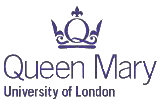
SCM Basic Information
Basic information
This page gives basic information about the course Scientific Measurement. The links below go directly to sections on:
Basic information
The course organiser is Prof. Eric Eisenhandler (room 201, Physics).
E-mail: e.eisenhandler@qmul.ac.uk
Office hour: Tuesdays, 9.30 to 10.30 am
The deputy course organiser is Dr. Thierry Lutz.
Demonstrators in the laboratory are Prof. Eric Eisenhandler, Dr. Thierry Lutz and Prof. Graham Thompson.
This course relies on the invaluable and enthusiastic assistance of our laboratory technicians, Peter Crew and Ted Lee (room 205A, Physics).This course is in Year 1, Semester 1, at level 1
It is worth 1.0 course unitsPrerequisites: None
Examination: No written paper; assessment entirely by coursework.
Lectures: 8 at 2 per week, then up to 6 at one per week
Practical work: 16 sessions of 3 hours each
Demonstrators:
Tuesdays – Prof. Eisenhandler
Thursdays – Prof. Thompson and Dr. LutzAncillary teaching:
Four weekly homework exercises
Training in computer skillsSynopsis of the course
Making measurements and interpreting their results are the most fundamental activities in experimental science. The aims of this course are: first, to teach some of the techniques and skills that will be used in later courses, and second, to train students to think critically about experimental data.
The following techniques are taught:
Appropriate methods to carry out particular measurements
Estimation of uncertainties in measurements, and their compounding
Graphical interpretation and analysis of data
Skills include:
Use of electrical and optical instruments
Use of computers to capture, analyse and display experimental data
Preparation of records and reports
Two formal laboratory reports are required, one for week 5 and one for weeks 9–11, but otherwise experimental measurements and data analysis are recorded on separate fill-in report forms. The report on each experiment must be completed and handed in before a student can progress to the next experiment.
Timetable summary
Lectures take place on Tuesdays and Fridays at 12 noon. Tuesdays in Physics UG1 and Fridays in Physics LG1.
Laboratory classes are held in the Physics 2nd floor laboratory from 2–5 pm on Tuesdays and Thursdays; demonstrators are only available during these periods. The laboratory is open at other times by arrangement with the Senior Technician, Mr Peter Crew.
Lab classes start the first Tuesday of term, 28th September 2004.
Lectures start on Tuesday, 28th September.Attendance at both the lectures and the laboratory sessions is essential. Attendance will be checked, and warnings will be given to those who are missing without a valid reason. Persistent non-attendance may result in deregistration from the course.
For each of the first four weeks students attend two 1-hour lectures and one 3-hour laboratory class. The lab groups will be further subdivided into subgroups A1, A2, B1 and B2 (see detailed schedule). For the first four weeks you work individually in the lab; in later weeks you work in pairs.
The lectures deal with measurement, the treatment of errors, statistical distributions, etc. Four homework problem sheets will supplement this material. The laboratory exercises cover electrical, optical, nucleonic and general techniques, in no set sequence – students work through each in turn. During these four weeks you will also learn to use the PCs in the laboratory for word processing and handling laboratory data.
From the fifth week you attend one lecture on (probably on Fridays) and two 3-hour laboratory classes each week. The topics are:
Weeks 5 and 6 – a short project using a digital thermometer, and the oscilloscope and its uses
Week 8 – vibrations and waves
Weeks 9, 10 and 11 – a longer project, chosen by the student from five possible options.
Weeks 7 (reading week) and 12 are for writing up projects
A complete list of the experiments available is given here.
More information
Full details of the course timetable, and deadlines for handing laboratory work in, are available on the weekly schedule and deadlines web pages.
More information about the laboratory reports, and computers and software, can be found on the coursework and computing tools web pages.
The homework problems, deadlines for handing them in, and later on solutions and comments on the marking, can be found on the homework problems web page.
Finally, details of how the marks are assigned for the course can be found on the course marking web page.
Recommended books
You are not required to purchase any books, and all those listed below are available on loan for use in the laboratory from the technicians as well as in the main library. You might decide to purchase one or more for your own reference, but do try them first. (Prices may have risen.)
Practical Physics – G.L. Squires, Cambridge Univ. Press (4th edition, 2001), £19.99. Recommended as a guide to good laboratory practice.
Writing for Science – H. Silyn-Roberts, Longman (1996), £16.99. Describes how to write scientific documents; more computer-oriented than Squires.
Statistics – R. Barlow, Wiley (1989), £24.95. An excellent reference book, goes far beyond what is covered in this course.
An Introduction to Error Analysis – J.R. Taylor, University Science Books (2nd edition, 1997), £20.99. Another very good statistics reference.
